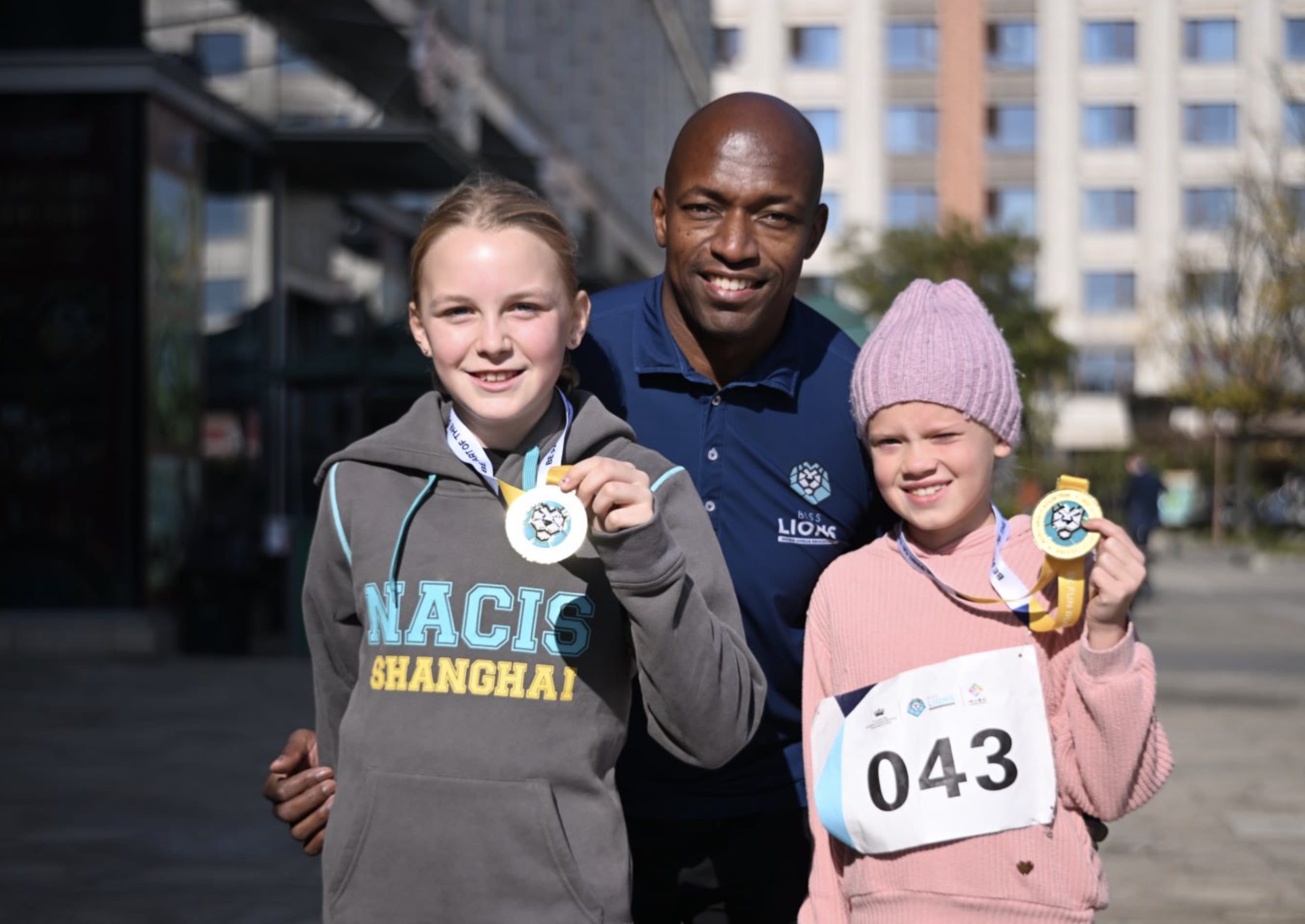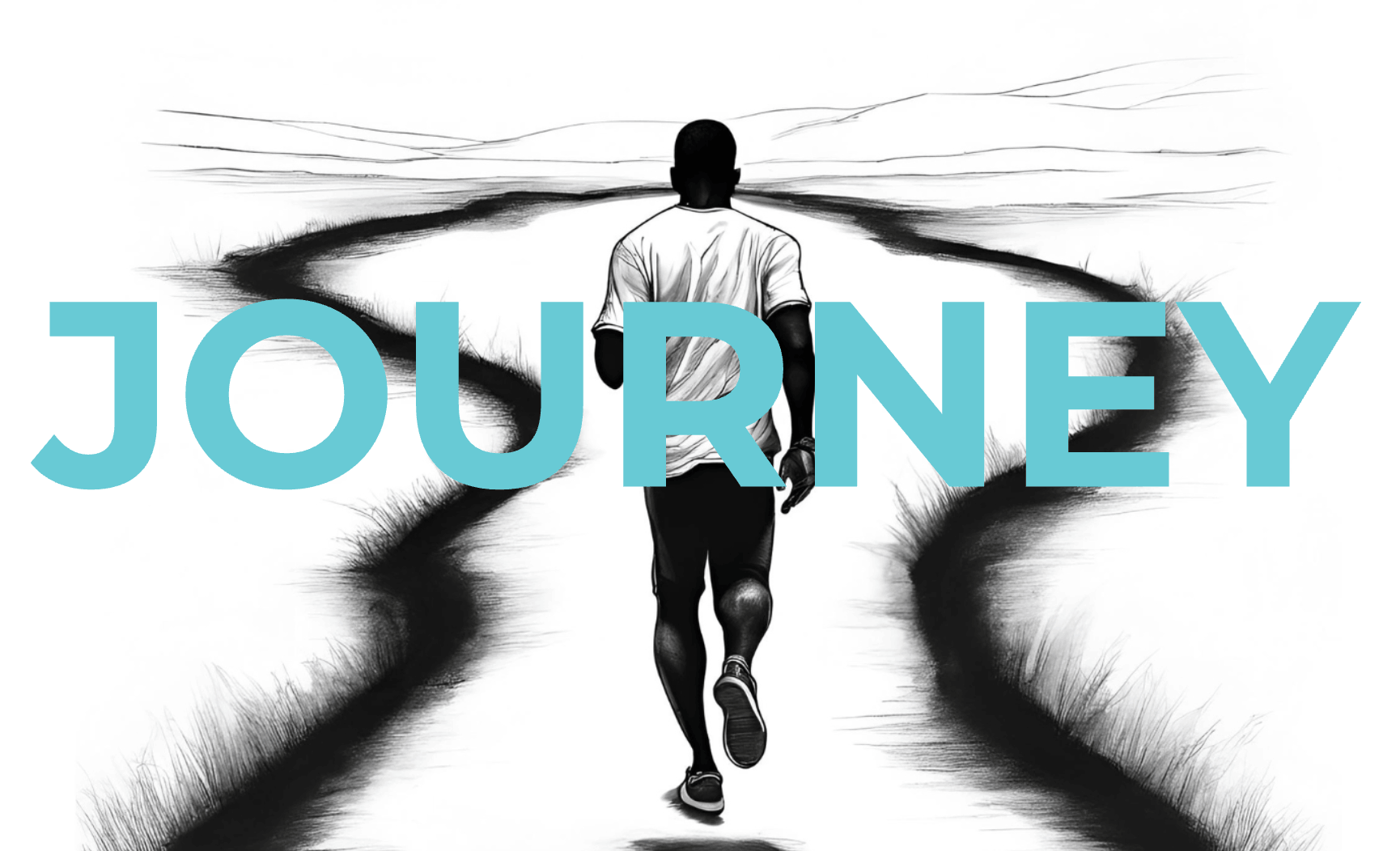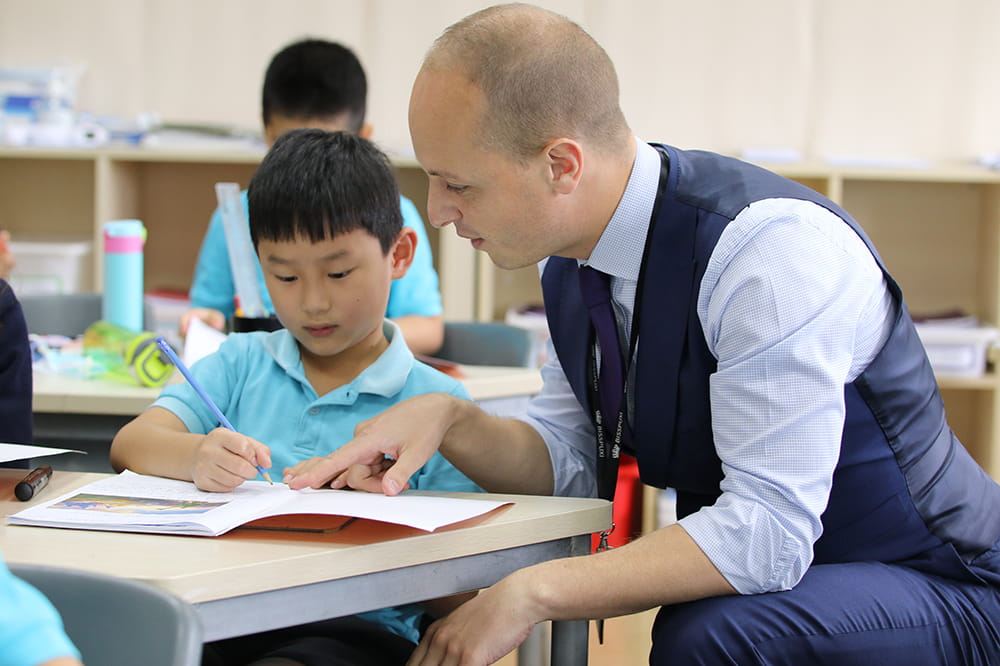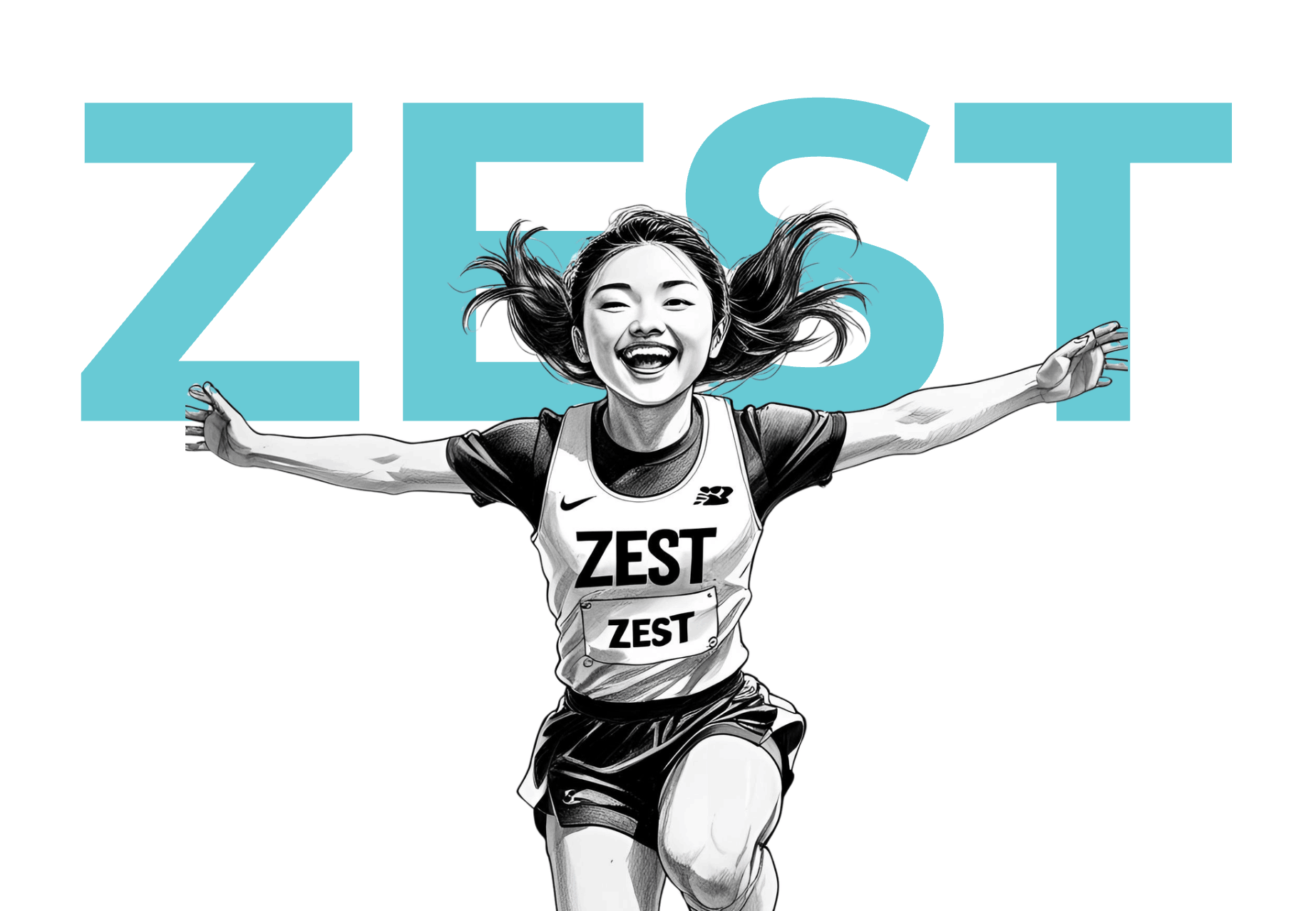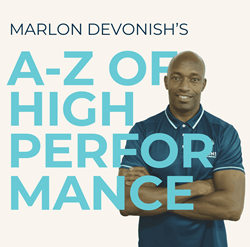
ELITE ATHLETE | PERFORMANCE COACH | P.E. TEACHER
There is no destination – it’s all about YOUR journey. This has been my mantra for as long as I can remember. So many people equate my success, or my “destination,” to the Gold medal — a marker to show the world my success. However, Gold medals are elusive. They can prey on your mind; you can try too hard and get injured.
You have to accept that the vast majority of people who have that dream, unfortunately, don’t achieve it. This is why your journey is so important. Your journey is your progression, and although it’s not always measurable, it is progression nonetheless. You have to approach both your mind and your body correctly. By focusing on your journey and progression, you will be motivated to reach your full potential.
Your Approach
Firstly, let’s clarify the difference between a goal and a destination. Regular readers of my blog will know that I’m somewhat obsessive about planning, practice, and goal setting. Each goal is a milestone that helps me create my training plan and push myself to the limits. The goals evolve as I grow, compete, win, or lose.
A destination is final. It’s the point where you feel you’ve "made it." Many people see Olympic Gold as that destination, but that’s not my experience, nor is it the approach of other elite athletes who have succeeded. The gold is a moment. It’s a moment in time (38.07 seconds, to be exact) when, with the support of my team and training partners, I executed everything perfectly and beat the best.
From my perspective, aiming for a “destination” can be counterproductive. It can create negative pressure and a narrow, short-term mindset that undermines your efforts to develop and grow.
Quotation: “There is no destination – it’s all about the journey.”
Get Personal
Another trait I find both positive and destructive is comparing yourself to others. There will always be someone who seems to have it better than you—whether it’s a better start in life, more financial backing, better genes, or better facilities. In life, people start at different places and finish at different points. I know from personal experience that life is not always fair. The only place where everyone starts at the same line and finishes at the same point is in a running race.
So, rather than think of your journey to elite performance as a linear start-to-finish process, see it as a cyclical development that constantly pushes you forward. Trust me, this approach will help you develop faster and better.
Where Are They Now?
As I look back at the friends I trained with as a youngster, I’m delighted to see how they’ve turned out. I like to think that, even though they didn’t continue in athletics as I did, they are all elite performers in their own right.
Some journeys have been tougher than others. My friend Leon Lloyd, an outstanding athlete who shared a passion for both athletics and rugby, was involved in a serious car accident. After such an event, many would have thought their dreams of reaching a ‘destination’ were over. But Leon didn’t let that happen.
Leon used his passion for sport to get back to fitness. We trained together, and despite the fact that I was not injured and had a physical advantage, he used that to fuel his development. Leon went on to represent Premiership rugby clubs Leicester Tigers and Gloucester Rugby Club, and played for England Rugby Union (1999-2002). I’m proud to have trained alongside him and to call him a friend.
Another friend, Ruben Tobares, also shared a passion for athletics. After enduring multiple injuries and misfortunes, he chose not to pursue his dream of competing internationally. Instead, he pivoted to a new path. Using his understanding of sport and performance, Ruben has transferred the determination, discipline, and drive he honed as an athlete into his new career as a nutritionist specialising in boxing. He has worked with athletes like British boxers David Haye and Amir Khan, and music artist Tinie Tempah.
Then there’s Srdjan Dragutinovic, a fellow sprinter I trained and competed with for Coventry Godiva Harriers early in my athletic career. I vividly remember the grueling track sessions we endured together—sessions that we dreaded but knew were necessary for growth. Srdjan later chose to pursue an academic path and is now a director of insight analytics at PwC, living in Melbourne with his family. It’s no surprise that, with his determined mindset and focus, Srdjan has become successful in his chosen career.
A Structure for Elite Performance at BISS Puxi
I made the transition from athletics to coaching and now to education with a mission: to help others find their own journey. At BISS Puxi, we’ve devised a clear structure led by a team of top sports educators.
The first step is participation, driven by an intrinsic love for your chosen sport or subject. In athletics, we often say, “Get to the line.” That means, during times of hardship, simply focus on getting to the starting line. Leon, Ruben, Srdjan, and I were all driven by a passion for sport, and we encourage that same passion within all of our students. Very few may reach an elite level, but everyone can benefit—both in terms of health and wellbeing, and academically.
The next step is training. Those who have read my previous blogs know how essential practice is to success in any arena. But training must be enjoyable, especially for young people, or you won’t see sustained development. I want to see our students grow, but I also want to see them enjoying the process.
For most, it’s natural to want to train and compete with others. This brings us to the next step: competition. In competition, you will face tougher moments. Sometimes you win, sometimes you lose, sometimes you’re in the team, and sometimes you’re out.
It’s in these moments that we learn the most. As a coach, I enjoy working with the children and sharing some of the tough moments I faced in my own journey. Learning how to compete, win, and lose in a positive way are life skills that will serve them well in the future.
The children we train must always strive to be the best they can be, and we expect maximum effort. However, win, lose, or draw, we celebrate the moment and take the learning from it. This is a core part of our philosophy within the BISS Puxi Sports department.
Elite Performance at BISS Puxi
There are two pathways to elite performance at BISS Puxi. The first pathway is the pursuit of elite sport. Many students have gone on to do great things in sport after leaving BISS Puxi. Alumni like Alard Schroeder, an elite triathlete who holds two world records in long-distance swimming, Charlotte Herbitz, who earned a football scholarship to a U.S. university, and Ben Schwartart, who is part of the Dutch Olympic swimming team, are just a few examples.
The second pathway is where BISS Puxi alumni apply the skills they developed here in areas outside of sports. Like my friends mentioned earlier, they’ve used the discipline, determination, and positive mindset honed through sports to excel in their careers. Whether in university, business, or society, they are elite performers.
The examples of BISS Puxi alumni who have used their sports skills to become elite in other areas are too numerous to list, but I have no doubt that they are all elite in their own right.
Everyone has their own journey, so enjoy and celebrate the pitstops along the way. And when you reach the top, continue to grow, because… there is no destination. Have fun, and good luck!
You have to accept that the vast majority of people who have that dream, unfortunately, don’t achieve it. This is why your journey is so important. Your journey is your progression, and although it’s not always measurable, it is progression nonetheless. You have to approach both your mind and your body correctly. By focusing on your journey and progression, you will be motivated to reach your full potential.
Your Approach
Firstly, let’s clarify the difference between a goal and a destination. Regular readers of my blog will know that I’m somewhat obsessive about planning, practice, and goal setting. Each goal is a milestone that helps me create my training plan and push myself to the limits. The goals evolve as I grow, compete, win, or lose.
A destination is final. It’s the point where you feel you’ve "made it." Many people see Olympic Gold as that destination, but that’s not my experience, nor is it the approach of other elite athletes who have succeeded. The gold is a moment. It’s a moment in time (38.07 seconds, to be exact) when, with the support of my team and training partners, I executed everything perfectly and beat the best.
From my perspective, aiming for a “destination” can be counterproductive. It can create negative pressure and a narrow, short-term mindset that undermines your efforts to develop and grow.
Quotation: “There is no destination – it’s all about the journey.”
Get Personal
Another trait I find both positive and destructive is comparing yourself to others. There will always be someone who seems to have it better than you—whether it’s a better start in life, more financial backing, better genes, or better facilities. In life, people start at different places and finish at different points. I know from personal experience that life is not always fair. The only place where everyone starts at the same line and finishes at the same point is in a running race.
So, rather than think of your journey to elite performance as a linear start-to-finish process, see it as a cyclical development that constantly pushes you forward. Trust me, this approach will help you develop faster and better.
Where Are They Now?
As I look back at the friends I trained with as a youngster, I’m delighted to see how they’ve turned out. I like to think that, even though they didn’t continue in athletics as I did, they are all elite performers in their own right.
Some journeys have been tougher than others. My friend Leon Lloyd, an outstanding athlete who shared a passion for both athletics and rugby, was involved in a serious car accident. After such an event, many would have thought their dreams of reaching a ‘destination’ were over. But Leon didn’t let that happen.
Leon used his passion for sport to get back to fitness. We trained together, and despite the fact that I was not injured and had a physical advantage, he used that to fuel his development. Leon went on to represent Premiership rugby clubs Leicester Tigers and Gloucester Rugby Club, and played for England Rugby Union (1999-2002). I’m proud to have trained alongside him and to call him a friend.
Another friend, Ruben Tobares, also shared a passion for athletics. After enduring multiple injuries and misfortunes, he chose not to pursue his dream of competing internationally. Instead, he pivoted to a new path. Using his understanding of sport and performance, Ruben has transferred the determination, discipline, and drive he honed as an athlete into his new career as a nutritionist specialising in boxing. He has worked with athletes like British boxers David Haye and Amir Khan, and music artist Tinie Tempah.
Then there’s Srdjan Dragutinovic, a fellow sprinter I trained and competed with for Coventry Godiva Harriers early in my athletic career. I vividly remember the grueling track sessions we endured together—sessions that we dreaded but knew were necessary for growth. Srdjan later chose to pursue an academic path and is now a director of insight analytics at PwC, living in Melbourne with his family. It’s no surprise that, with his determined mindset and focus, Srdjan has become successful in his chosen career.
A Structure for Elite Performance at BISS Puxi
I made the transition from athletics to coaching and now to education with a mission: to help others find their own journey. At BISS Puxi, we’ve devised a clear structure led by a team of top sports educators.
The first step is participation, driven by an intrinsic love for your chosen sport or subject. In athletics, we often say, “Get to the line.” That means, during times of hardship, simply focus on getting to the starting line. Leon, Ruben, Srdjan, and I were all driven by a passion for sport, and we encourage that same passion within all of our students. Very few may reach an elite level, but everyone can benefit—both in terms of health and wellbeing, and academically.
The next step is training. Those who have read my previous blogs know how essential practice is to success in any arena. But training must be enjoyable, especially for young people, or you won’t see sustained development. I want to see our students grow, but I also want to see them enjoying the process.
For most, it’s natural to want to train and compete with others. This brings us to the next step: competition. In competition, you will face tougher moments. Sometimes you win, sometimes you lose, sometimes you’re in the team, and sometimes you’re out.
It’s in these moments that we learn the most. As a coach, I enjoy working with the children and sharing some of the tough moments I faced in my own journey. Learning how to compete, win, and lose in a positive way are life skills that will serve them well in the future.
The children we train must always strive to be the best they can be, and we expect maximum effort. However, win, lose, or draw, we celebrate the moment and take the learning from it. This is a core part of our philosophy within the BISS Puxi Sports department.
Elite Performance at BISS Puxi
There are two pathways to elite performance at BISS Puxi. The first pathway is the pursuit of elite sport. Many students have gone on to do great things in sport after leaving BISS Puxi. Alumni like Alard Schroeder, an elite triathlete who holds two world records in long-distance swimming, Charlotte Herbitz, who earned a football scholarship to a U.S. university, and Ben Schwartart, who is part of the Dutch Olympic swimming team, are just a few examples.
The second pathway is where BISS Puxi alumni apply the skills they developed here in areas outside of sports. Like my friends mentioned earlier, they’ve used the discipline, determination, and positive mindset honed through sports to excel in their careers. Whether in university, business, or society, they are elite performers.
The examples of BISS Puxi alumni who have used their sports skills to become elite in other areas are too numerous to list, but I have no doubt that they are all elite in their own right.
Everyone has their own journey, so enjoy and celebrate the pitstops along the way. And when you reach the top, continue to grow, because… there is no destination. Have fun, and good luck!

